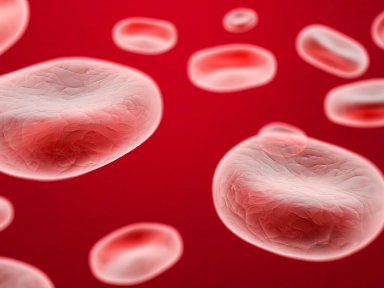drugsMay 27, 2021
Tag: Myfembree , menstrual bleeding , Uterine Fibroids
Myovant Sciences (NYSE: MYOV) and Pfizer Inc. (NYSE: PFE) today announced that the U.S. Food and Drug Administration (FDA) has approved Myfembree (relugolix 40 mg, estradiol 1 mg, and norethindrone acetate 0.5 mg), the first once-daily treatment for the management of heavy menstrual bleeding associated with uterine fibroids in premenopausal women, with a treatment duration of up to 24 months. The approval is supported by efficacy and safety data from the Phase 3 LIBERTY 1 and LIBERTY 2 studies, which were published in the New England Journal of Medicine. Under the terms of their previously announced collaboration, Myovant and Pfizer will jointly commercialize Myfembree in the U.S. Myfembree is expected to be available in June 2021.

“With Myfembree, we can offer women with uterine fibroids a non-invasive treatment that provides clinically meaningful symptom relief for heavy menstrual bleeding with one pill, once-a-day,” said Ayman Al-Hendy, M.D., Ph.D., Professor of Obstetrics and Gynecology, University of Chicago, and LIBERTY Program Steering Committee Member. “The FDA approval of Myfembree represents a significant milestone in expanding treatment options for uterine fibroids, a chronic and debilitating disease for many women in the U.S.”
“Uterine fibroids affect millions of women in the U.S. and account for over 250,000 hysterectomies each year, with heavy menstrual bleeding being one of the most bothersome symptoms,” said David Marek, Chief Executive Officer of Myovant Sciences, Inc. “The approval of Myfembree represents the second FDA product approval for Myovant in less than one year. This is an important step forward as we seek to redefine care for women and for men, not only through new medicines but through continued collaboration with the community.”
“Myfembree’s approval is a testament to the shared commitment between Myovant and Pfizer to support women living with uterine fibroids,” said Nick Lagunowich, Global President, Internal Medicine at Pfizer. “We are excited to offer this new treatment option which will help provide much needed symptom relief with the convenience of an oral, once-daily tablet.”
The Phase 3 LIBERTY studies each met the primary endpoint, with 72.1% and 71.2% of women in the Myfembree groups achieving the responder criteria compared with 16.8% and 14.7% of women in the placebo groups at Week 24, respectively (both p < 0.0001). A response was defined as a menstrual blood loss volume of less than 80 mL and a 50% or greater reduction from baseline in menstrual blood loss volume during the last 35 days of treatment measured using the alkaline hematin method. Women receiving Myfembree experienced reductions of 82.0% and 84.3% in menstrual blood loss from baselines, respectively (both p < 0.0001 compared to placebo). Adverse reactions occurring in at least 3% of women treated with Myfembree and at a greater incidence than placebo were hot flush, abnormal uterine bleeding, alopecia, and decreased libido. There were no pregnancies reported in the Myfembree groups in either study.
Myovant and Pfizer are committed to supporting women in the U.S. who are prescribed Myfembree throughout their treatment journeys. The Myfembree Support Program provides services, including insurance benefits checks, prior authorization support, co-pay support for commercially insured patients, and patient assistance for qualifying uninsured patients. Program terms and conditions apply. For more information and additional resources, please contact 833-MYFEMBREE (833-693-3627), 8 a.m.–8 p.m. Eastern Time, Monday–Friday.
Uterine fibroids are noncancerous tumors that develop in or on the muscular walls of the uterus and are among the most common reproductive tract tumors in women. In addition to an individual's genetic predisposition, estrogens are well known to play an important role in the regulation of fibroid growth.
Although uterine fibroids are benign tumors, they can cause debilitating symptoms such as heavy menstrual bleeding (frequently resulting in anemia and fatigue), pain (including painful periods, abdominal pain, painful intercourse, backache), increased abdominal girth and bloating, urinary frequency or retention, constipation, pregnancy loss, and, in some cases, infertility. These symptoms can also lead to loss of productivity at work, limitations in normal activities of daily living, and social embarrassment.
An estimated five million women in the U.S. suffer from symptoms of uterine fibroids, and an estimated three million women are inadequately treated by current medical therapy and require further treatment.
Myfembree (relugolix 40 mg, estradiol 1 mg, and norethindrone acetate 0.5 mg) is the first once-daily treatment for heavy menstrual bleeding associated with uterine fibroids in premenopausal women approved by the U.S. Food and Drug Administration, with a treatment duration of up to 24 months. Myfembree contains relugolix, which reduces the amount of estrogen (and other hormones) produced by ovaries, estradiol (an estrogen) which may reduce the risk of bone loss, and norethindrone acetate (a progestin) which is necessary when women with a uterus (womb) take estrogen.


Contact Us
Tel: (+86) 400 610 1188
WhatsApp/Telegram/Wechat: +86 13621645194
Follow Us:




 Pharma Sources Insight January 2025
Pharma Sources Insight January 2025


